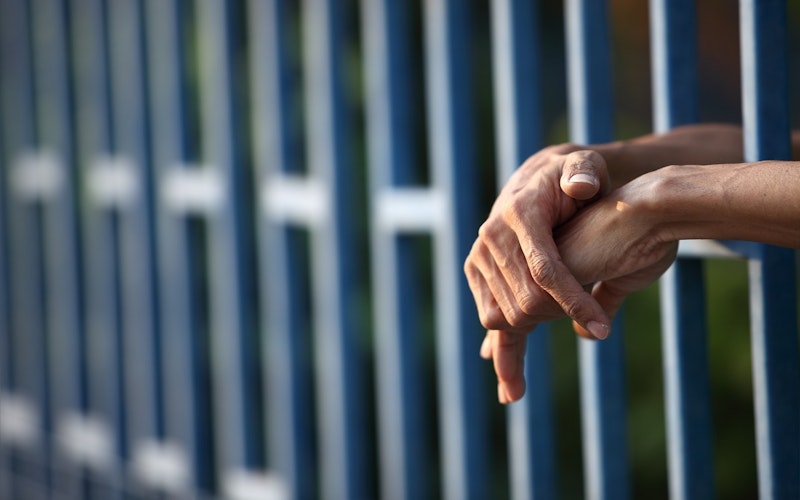
Culture At Large
When prisoners choose not to escape
Some Arizona prisoners made headlines when their transport bus crashed into an overturned semitrailer just after midnight on a remote stretch of desert highway last month. The newsworthy part wasn’t just the crash itself, as bad as it was, but the fact that when first responders arrived, they didn’t have to scramble law enforcement to round up a bunch of escaped convicts. Instead, they found the uninjured inmates tending to the wounded and helping direct traffic. In spite of the commotion, not one of the 50 passengers was unaccounted for.
It’s a bittersweet counterpoint to the media-fueled panic that accompanied the manhunt for two escaped convicts in New York earlier this summer. We forget that part of the reason prison escapes are so sensational is because they’re so rare. Whereas the New York incident prompted a needless security crackdown, the story of the 30 Arizona prisoners challenges the necessity of some of the dehumanizing measures we already employ to keep 1.6 million men and women in custody in the United States.
For Christians, the bus crash might conjure the remarkable scene in Acts 16, where Paul prevents a Philippian jailer’s suicide by affirming that he and his fellow inmates haven’t fled their cells, despite a supernatural intervention – an earthquake – that broke their chains. What I’ve always found most interesting in this passage is that it’s not just Paul and Silas, but all of the prisoners who stay put, presumably because they were impressed with the disciples and understood how their escape would render the jailer’s life forfeit. We might expect such a thing of persecuted believers, but we wouldn’t expect it of common criminals. In these stories, both ancient and modern prisoners demonstrate a disruptive selflessness in the face of extraordinary circumstances, revealing a basic human dignity that society would prefer to ignore.
No offender, however heinous the crime, can be reduced to an offense.
The Acts 16 incident precipitated the jailer’s conversion. I think the Arizona bus crash demands a response, too.
We should remember that no offender, however heinous the crime, can be reduced to an offense. If nothing more, the Gospel imperative to love one’s enemies surely requires that in our preoccupation with guilt we don’t give up on the guilty. That wouldn’t mean withholding just punishment, necessarily, but it would mean focusing less on the things that make us different from offenders and more on the things that we hold in common with them. More concretely, it would mean honoring ex-offenders’ real capacity for contributing to communities, so that they may experience meaningful reintegration into society.
Every one of those Arizona prisoners - and hundreds of thousands more minimum-security offenders like them who are serving smaller sentences - will eventually return to a local community. There’s no question about that. But there’s a very real question about whether we’ll let grace preempt condemnation when confronted with them in our neighborhoods. We can’t change a flawed correctional system overnight. But we can start by sympathizing with the broken people behind the crimes, helping them get solidly back on their feet. If most prisoners would gladly assist their own custodians in a time of need, surely we can return the favor when they most need us.
Topics: Culture At Large, Theology & The Church, The Bible, News & Politics, Justice, North America